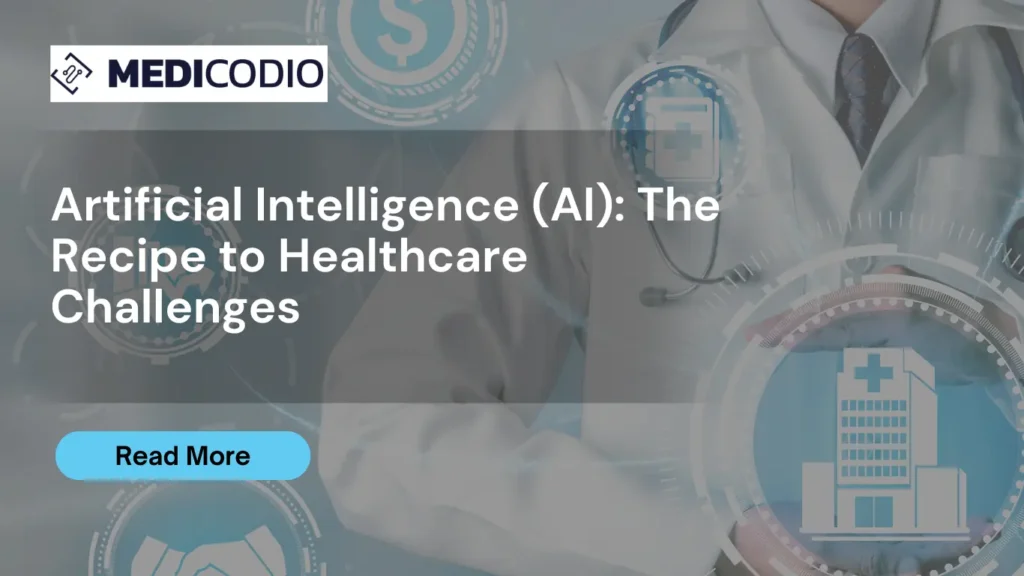In the United States, the healthcare industry is going through a rough patch when it comes to recruiting and retaining medical staff. The workforce staff shortage has created a significant ripple effect across the industry.
According to the reports by McKinsey, the U.S. would face significant healthcare worker shortages in the coming decade. By 2025, the survey firm predicts a shortage of more than 400,000 home health aides and 29,400 nurse practitioners. There will also be shortages in other healthcare professions.
As healthcare leaders look for an answer to the rising workforce shortage issue, Artificial Intelligence (AI) emerges as a silver lining. The advancements in AI have already begun to help healthcare companies streamline their operations.
Here are some of the ways AI can help healthcare facilities:
Strengthen your Existing Staff
With the rise of staffing shortages, AI presents a viable solution to address critical gaps in various industries.
By automating repetitive tasks and easing administrative burdens, AI can significantly alleviate the pressure on overworked staff members. This technology allows clinical and administrative workers to utilize their time more efficiently, enabling them to enhance their skills and perform at their highest capacity.
For instance, the American Medical Association (AMA) discovered that the healthcare sector is experiencing a shortage of skilled medical coders, specifically around 30%. With many coders reaching retirement age, there are insufficient replacements available. AI-powered healthcare coding aids healthcare organizations by enhancing accuracy, minimizing claim denials, and expediting reimbursement processes.
Additionally, AI-driven coding systems easily adapt to complex new coding guidelines, ensuring adherence and precision in coding practices.
Enhance Revenue and Operating Margins
Healthcare organizations were already running on a thin line when it comes to revenue and operating margins. The clinical staff shortages along with rising inflation and a faltering economy have only worsened the situation.
However, AI adds value by striking the balance between the quality of patient care and productivity. The AI tools not only optimize RCM costs but also reduce tedious manual work. Overall, it generates quantifiable savings in costs, decreases denials, speeds up processing times, and enhances revenue collection.
Recruit Skilled Medical Coders
AI can significantly aid in recruiting top-tier medical coders within the industry by streamlining the identification and assessment of qualified candidates. Through advanced algorithms, AI can analyze vast amounts of data to pinpoint individuals with the right skill sets and experience.
Moreover, AI-powered screening processes can efficiently sift through resumes, certifications, and work histories, narrowing down the pool to the most promising candidates. Additionally, AI can facilitate skills assessment through simulations or targeted tests, ensuring a more accurate evaluation of candidates’ coding abilities. This streamlined and precise approach not only saves time but also increases the likelihood of hiring highly skilled medical coders who can contribute effectively to the organization.
What Healthcare Leaders Must know about AI medical coding 2024?
C-level executives and decision-makers in healthcare must approach the adoption of AI strategically to maximize its benefits while mitigating potential risks.
Firstly, it’s crucial to align AI implementation with the organization’s overarching goals and needs. This involves thorough evaluation and identification of areas where AI can bring the most value, whether in improving patient care, operational efficiency, or cost savings.
Secondly, fostering a culture that embraces AI integration is essential. This includes investing in employee training to ensure staff members are equipped to work collaboratively with AI technologies.
Thirdly, establishing robust data governance and security measures is imperative to safeguard sensitive patient information and maintain compliance with regulations. Finally, continuous monitoring and assessment of AI systems’ performance are vital to refine strategies and optimize outcomes, ensuring that the technology evolves in tandem with the organization’s evolving needs and advancements in the healthcare landscape.
Frequently Asked Questions by Healthcare and RCM leaders about AI medical coding tool!
CEOs considering a medical coding tool often ask important questions to assess its value and impact on their organization. Some key queries include:
- Accuracy & Compliance: Does the tool ensure accurate coding while complying with industry regulations (like ICD-10, CPT, etc.) to avoid potential penalties or audits?
Answer: NLP in Medical Coding: Achieve Accuracy and Efficiency
- Integration & Compatibility: How easily does the tool integrate with existing systems (EMR, EHR) and workflows? Will it require significant changes or downtime?
Answer: What Features Should You Look for in Medical Coding AI Solutions?
- Efficiency & Productivity: Will the tool streamline coding processes, reducing manual errors and saving time for coding staff? What measurable improvements can be expected in productivity?
Answer: How to Increase Medical Coder Productivity in Healthcare?
- Cost & ROI: What are the initial costs and ongoing expenses associated with implementation and maintenance? What’s the projected return on investment in terms of time and cost savings?
Answer: Where AI Can Make a Huge Difference in the Healthcare Revenue Cycle?
- Scalability & Future-Readiness: Can the tool accommodate the organization’s growth and changing needs? Are there regular updates and advancements planned to stay current with evolving coding standards?
Answer: Stay Current with Medical Coding Updates 2023 using MEDICODIO
- Security & Data Privacy: How does the tool ensure the security and confidentiality of sensitive patient information? Does it adhere to industry-standard data privacy regulations like HIPAA?
Answer: How CODIO, an AI-enabled Medical Coding Tool, Ensures Healthcare Law Compliance
If you are one of those leaders who have similar questions, MEDICODIO is here to help. MEDICODIO offers an AI-powered medical coding tool that helps RCM companies and healthcare facilities carry out medical coding tasks efficiently without any errors.
Get in touch with us!





